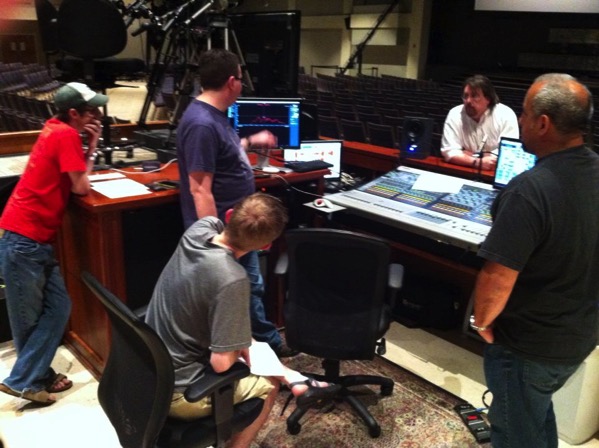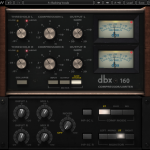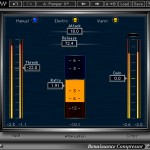
It Takes Time
Have you heard of the Four Stages of Competence? I stumbled on these a few weeks ago, and they seemed very applicable to audio. The Four Stages of Compentence are the stages you go through when you are learning a new skill.
The four stages are:
- Unconscious Incompetence
- Conscious Incompetence
- Conscious Competence
- Unconscious Competence
So let’s look at these a little closer and begin to unpack them a bit.
1. Unconscious Incompetence
In a nutshell, Stage 1 is where you don’t know what you don’t know.
This is where a lot of engineers are when they make that initial decision in their head to pursue audio. They like music and/or maybe it looks cool and fun. From the outside, maybe audio seems like it wouldn’t be that complicated or difficult so they decide to dive in without knowing what’s really involved.
2. Conscious Incompetence
Stage 2 is where you recognize and accept you don’t know it all or what you’re doing, yet.
This is where a full view of the mountain takes place, and you begin to understand how much there is to learn. This is where most people begin absorbing a lot of information which sometimes may seem like drinking from a firehose. This is also the stage where people make a lot of mistakes, but those mistakes are necessary for growth and refinement.
3. Conscious Competence
Stage 3 is where you begin to understand what you’re doing, but it still takes a lot of effort and concentration to be successful.
You know what needs to be done, but it may take a fair amount of thinking to get there. You can be successful, but it’s not always easy for you at this point. In my mind, someone at Stage 3 will be putting out professional sounding results, although they may feel like they struggle to get there or use a lot of energy in the process.
4. Unconscious Competence
Stage 4 is where things become second-nature, and you begin to really master your craft.
You give off the impression you can do this in your sleep. What you’re doing looks easy to others, and they begin to forget or even completely fail to recognize the hundreds if not thousands of hours you spent working through the earlier stages to get to this point.
So, something I like about these stages is the simple recognition that developing a skill takes time and is a process. I also like these stages because they can be used to chart progress which can be a big help in encouraging and motivating folks to keep at their development. For me, these are becoming a great aid in determining where someone is currently at in order to help focus their development.
Working with audio is definitely a skill that takes time to develop, however, one of the challenges we face as engineers–especially in church world–is we sometimes encounter people who don’t understand this. They’ve heard results from guys who are at Stage 3 and 4 in their development and don’t understand why everyone isn’t at that stage.
I believe part of this stems from the simple fact that in our culture we are constantly bombarded by work done by engineers in those later stages because the nature of most professional work is that it’s done by engineers in those later stages of development or who can at least fake it more often than not. Personally, I run into a lot of people, especially in leadership, with expectations for their engineer(s) to be at Stage 3 and 4 when the guys they have are really at Stage 1 and 2.
Now, I believe it is OK to be at any stage of this process because everyone starts somewhere, and everyone has to walk through the process of developing their skills. It is possible, however, that the stage an engineer is currently at might not be the right fit for where he’s engineering, but that’s something he and/or the powers that be need to figure out.
In my experience, most church world audio engineers tend to be at Stage 1 or 2, and I’m not limiting this assessment to volunteers. Even some of the staff engineers I encounter are somewhere in Stage 2, but more on that in a bit.
I think a lot of aspiring engineers jump to stage 2 fairly quickly the first time they encounter a large audio console. In my years on staff at larger churches, I often witnessed new volunteers come in ready to take over the world, but reality quickly set in after they spent a weekend with us and realized what was involved. In most cases this was motivation for them to learn.
However, it can be surprising how many engineers linger in Stage 1. In my opinion, this happens most often when an engineer is incapable of recognizing the difference between their work and that of someone in a later stage of skill development. It also happens when an engineer has very little aspiration about improving their skills. Fortunately, I don’t encounter a lot of engineers who are like this.
I do encounter guys in Stage 3, and then there are a lot of guys who kind of blur the line between Stage 2 and 3. Most of the staff guys I meet tend to live somewhere in between the 2nd and 3rd stages. So what does that look like?
In many ways, skill at audio engineering is really a combination of a subset of skills. For example, using a compressor is a skill subset. Mic placement is another example. In my experience, it’s not unusual to find an engineer who has mastered one skill subset while still developing other skills. That’s kind of the nature of what we do, in my opinion.
Here’s another way to look at this. Maybe you get amazing guitars in your mix, but the bass and drums aren’t as good and don’t seem to fit. Or maybe the band is amazing, but the vocals could use some work. Or maybe your balances are great, but you struggle with using effects to take the mix to the next level.
As audio engineers, I believe we can look at these stages of development both holistically and in terms of the individual skills that go into being an engineer. However, I believe the non-audio engineering world looks at things much more holistically. Many of the staff engineers I encounter have mastered portions of the audio engineering skill set, however some of them haven’t mastered enough to completely move them out of a holistic Stage 2 level of development, and this leads into another big expectation I see.
Some people expect their engineers to move from one stage to the next with “the flip of a switch”. That switch may be a conference or a book or a video or a combination of these resources. While these things can all help in development by providing information, the truth is that it takes time and practice to develop the skills you need. Plus, there can still be another resource I have found to be even more helpful.
From my own personal experience, I believe one of the best ways to expedite skill development is with the help of a mentor or coach which is a big reason why I offer workshops and one-on-one development opportunities. I designed both of these services with the intent of meeting engineers where they’re at in their development right now to help guide and move them to the next stage of their development. There is plenty of information readily available these days, but it’s something else to have someone come into the world you’re used to who can have a conversation with you offering tips, strategies, and techniques to focus on. While I’m a strong advocate for self-guided learning, I know I never would have developed my engineering chops without the help of the engineers who worked with me one on one to perfect my skills. Now I’m offering that opportunity to the next generation of engineers because I believe audio in your church can and should be great no matter the size.
If you’d like to find out more about how I can help you and/or your team move to the next stage in developing your audio skills, click HERE or visit the Contact page from the menu above.


 Previous Post
Previous Post Next Post
Next Post




Yep pretty good David.
I guess after stage 4 you just mix no matter what time of day it is and no matter the venue.
Keeping up with technology changes is also vital after stage 4 since being able to adapt to any band, worship leader or situation is what needs to be in the tool box.
Sort of. There probably is a bit of that, but at the same time I think with any craft there can always be continual learning. I’ve certainly found that this audio journey has been an ongoing learning experience.